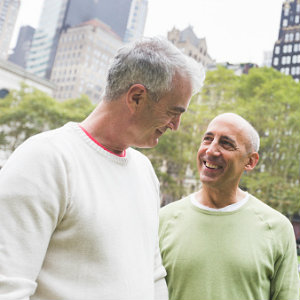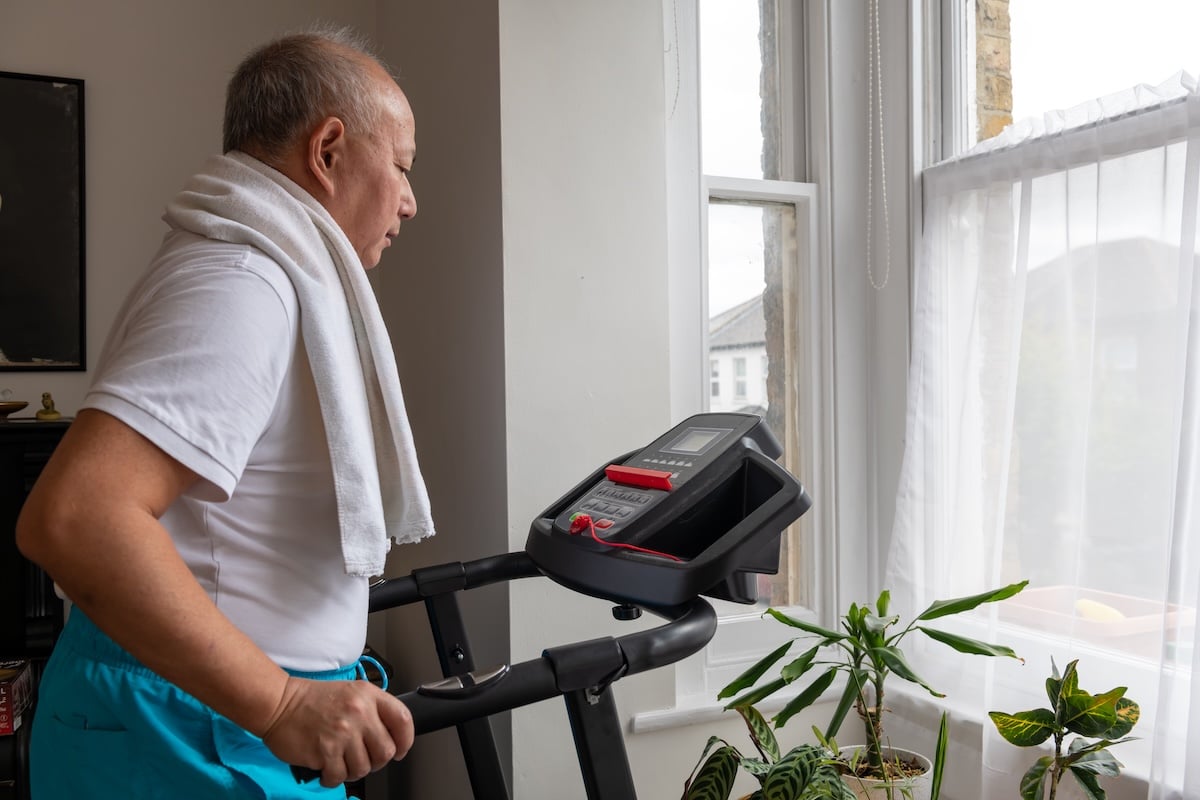“As a trans person, I am afraid of services so I avoid or refuse preventive care. I do not know what I will do if I am unable to care for myself,” a 62-year-old trans bisexual woman recently told a research group.
Many lesbian, gay, bisexual or trans (LGBT) older adults share these sentiments, which is why many LGBT older adults don’t come out as often as they should to their doctors. While many LGBT older adults struggle to get their healthcare needs met, a study from the University of Washington’s School of Social Work found they are finding ways to promote health and reduce disparities through communities of mutual support.
By 2060, more than 5 million adults 50 and older will identify as LGBT — that’s up from about 3 million today. As the healthcare landscape changes and baby boomers age, it's essential support networks remain strong.
Health Implications for Older LGBT Men and Women
More than two-thirds of those who participated in the study reported they experienced physical or verbal assaults and discrimination more than three times in their lives. Study author Karen Fredriksen-Goldsen notes that as a result of these experiences, more LGBT older adults are likely to have poorer general health, more chronic conditions and higher rates of disability and greater psychological stress.
Perhaps not surprisingly, gay and bisexual older men are more likely than heterosexual older men to have poor general health and live alone. Lesbian and bisexual older women are more likely to have cardiovascular disease and have more chronic conditions than their heterosexual counterparts. Bisexual and transgender older adults are at higher risk of victimization and discrimination. They are also more likely to live in poverty and have poorer health than their gay and lesbian peers.
Of the 2,400 study participants, 47 percent reported they had a disability, and because of the stressors of living as LGBT, these disabilities start at an earlier age, Fredriksen-Goldsen says.
The Unintended Consequences of Coming Out
While coming out can be empowering and healthy, it can be difficult for older adults to remain out to family members and others in their lives. If they need assistance from in-home caregivers, for example, an LGBT older adult might be tempted to hide their sexuality out of fear over how the caregiver could react.
"Many of the LGBT seniors, especially if they have increased needs and don't have the support around them, say that they feel that they have to go back into the closet when they're most vulnerable," Fredriksen-Goldsen explains. "If they're going to go live in a long-term care facility, certainly it can create isolation for them."
The Importance of Social Support
Though LGBT older adults face increased health risks, they have increased social support, says Fredriksen-Goldsen. LGBT older adults involved in their communities often encounter less victimization and discrimination and a greater sense of connectedness and belonging.
Considering Your Social Support Needs
According to the National Institutes of Health (NIH), a person’s social network can be comprised of many people, including:
- Family
- Friends
- Coworkers
- Neighbors
- Acquaintances
- Members of online communities
Interestingly, an NIH study found that transgender older adults have a larger social support network because of the increasing number of online groups. The study also found that those LGBT older adults who had a child or partner had a larger social support network.
If you’re struggling with isolation, help is available. Services and Advocacy for GLBT Elders (SAGE) has a hotline dedicated to LGBT older adults and their unique needs. Staffed by LGBT volunteers, the hotline is available from 4 p.m. to midnight EST Monday through Friday and from noon to 5 p.m. EST on Saturdays. Reach the hotline toll-free at 1-888-234-SAGE, or by email at SAGE@GLBThotline.org.
The American Psychological Association recommends these tips for creating a social network:
Reach out to your network: If you already have a network of friends or even acquaintances, make time to talk with them or go out for coffee, a movie or other social activity. Even something as simple as lending a hand or saying hello can have benefits.
Use technology: Technology like online forums or Skype make it easy to connect and stay connected with others.
Follow your interests: Whether you enjoy pottery, reading, fishing, running, baking or something else entirely, chances are there is a local group of people who also enjoy the same. Join a club or sign up for a class to help make connections.
LGBT Resources for Older Adults in Ohio
Ohio has several resources focusing on the needs of aging LGBT adults. If you are looking for support, consider contacting one of the organizations below.
The LGBT Community Center of Greater Cleveland
Old Lesbians Organizing for Change (OLOC) Cleveland
Trailblazers Stonewall Columbus














